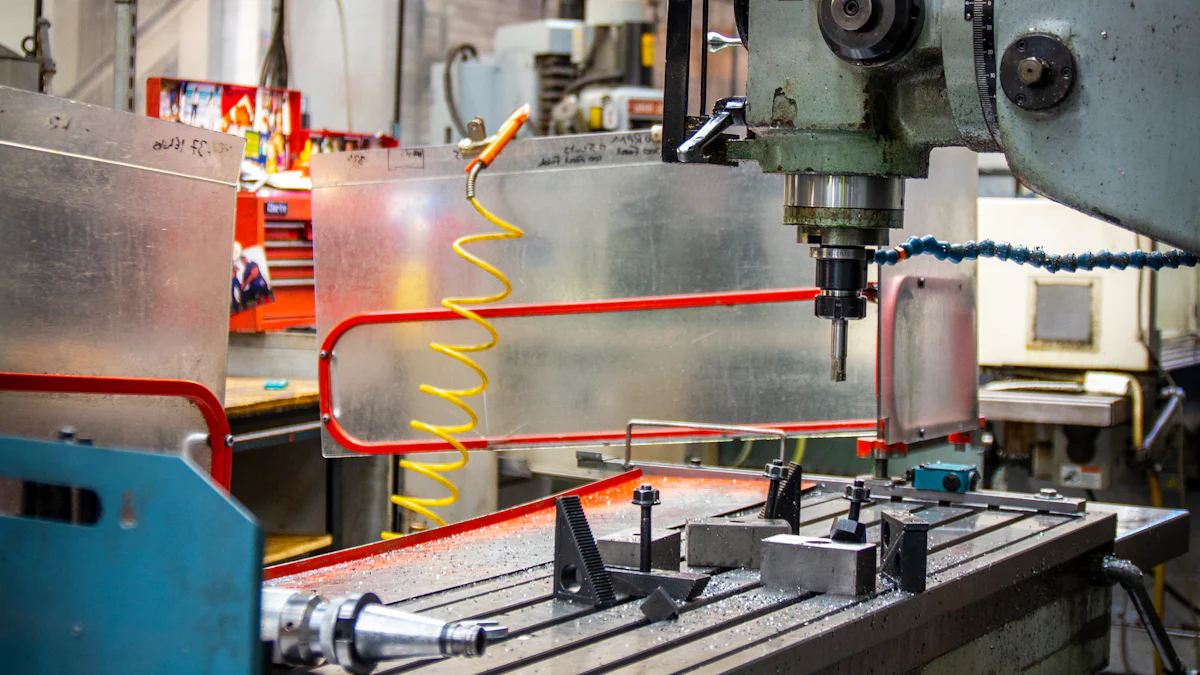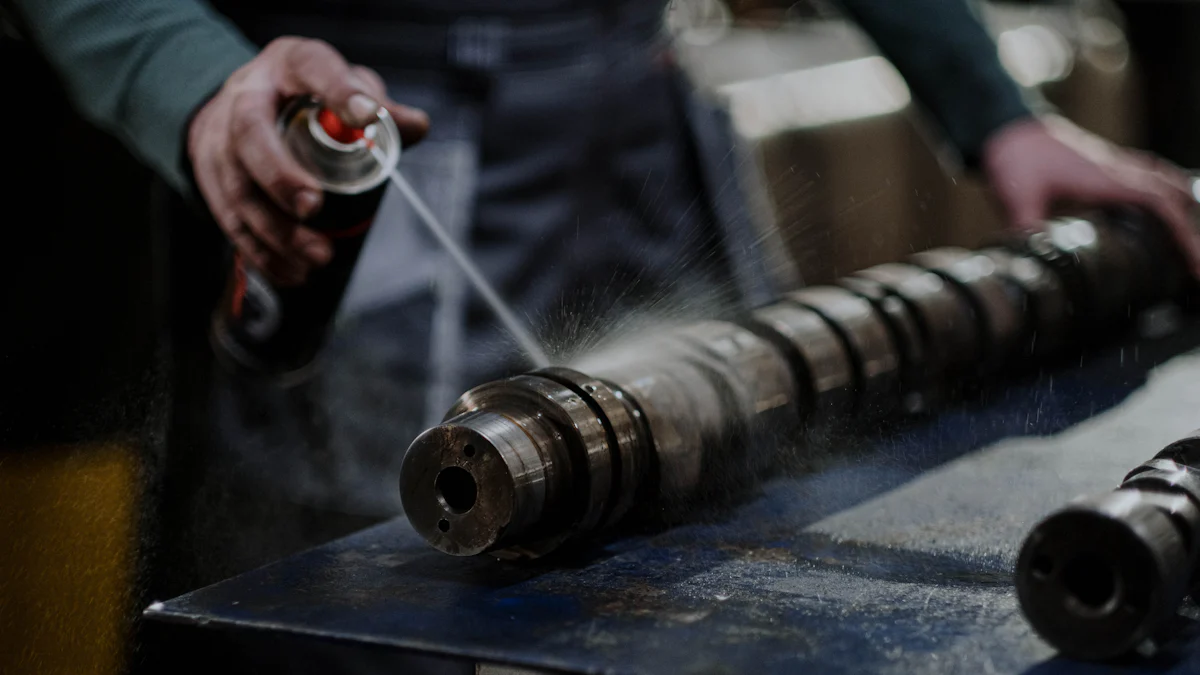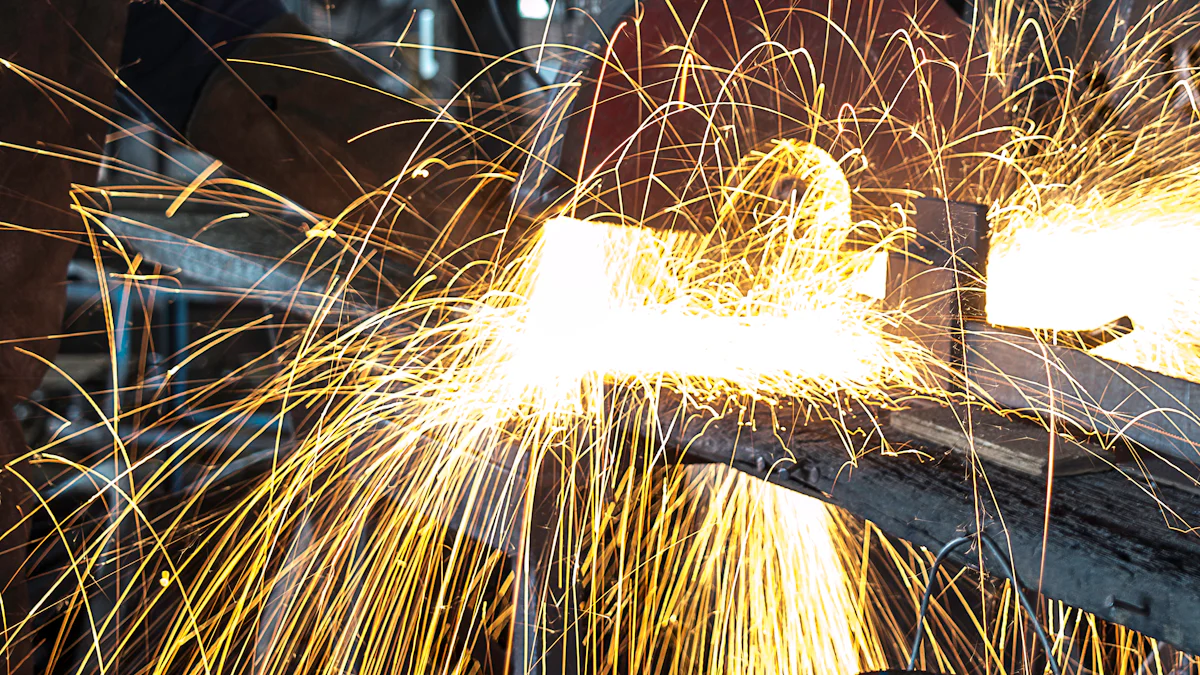
Welding equipment-Stainless steel precision casting transforms the industry with its unmatched durability and precision. Utilizing stainless steel 304, renowned for its high heat and corrosion resistance, ensures reliability in harsh environments. The investment casting process allows for intricate designs, producing Stainless Steel Investment Casting Parts such as pressure plates. This method minimizes waste while delivering superior surface finishes and dimensional accuracy in precision metal products.
Unique Properties of Stainless Steel for Welding Equipment-Stainless Steel Precision Casting

Corrosion Resistance
Stainless steel stands out for its exceptional corrosion resistance, making it a top choice for welding equipment. This property stems from its chromium content, which forms a protective oxide layer on the surface. Depending on the grade, chromium levels range from 11% to 30%, enhancing its ability to withstand harsh environments. For instance, grade 304 stainless steel resists corrosion in many conditions but may struggle in saline or chloride-rich areas. In such cases, grade 316, with added molybdenum, offers superior protection against pitting and crevice corrosion. This makes stainless steel ideal for welding applications where exposure to moisture, chemicals, or extreme conditions is common.
High Heat Tolerance
Welding often involves intense heat, and stainless steel excels in these scenarios. Austenitic stainless steel, like grade 304, has low thermal conductivity, which helps manage heat distribution during welding. However, careful control of welding parameters is essential to prevent overheating and distortion. Preheating can also play a critical role, especially for martensitic and austenitic steels, by reducing cooling rates and minimizing the risk of cracking. This heat tolerance ensures that stainless steel maintains its structural integrity and corrosion resistance, even in demanding welding environments.
Strength and Durability
The strength and durability of stainless steel make it a reliable material for welding equipment. For example, Type 304L stainless steel, used in nuclear industry components, demonstrates near-parent metal strength when welded with electron beam techniques. This ensures long-lasting performance in critical applications. Similarly, marine heat exchangers crafted from austenitic stainless steel highlight its ability to endure corrosive environments and mechanical stress. These qualities make stainless steel an excellent choice for precision casting parts like pressure plate assemblies, which require both strength and precision.
Versatility in Design and Application
Stainless steel’s versatility enhances the functionality of welding equipment. Materials like stainless steel 304 are not only heat and corrosion-resistant but also adaptable to various shapes and designs. For instance, the pressure plate assembly in welding equipment-stainless steel precision casting ensures stability during welding, improving the quality of the final product. This adaptability allows stainless steel to be used across industries, from automotive manufacturing to food machinery production. Its ability to meet diverse requirements makes it indispensable for precision casting solutions.
Ningbo Pingheng Machinery Co., Ltd., established in 1999, leverages the investment casting process to produce high-quality stainless steel components. By using materials like stainless steel 304 and 316, the company delivers precision casting solutions for industries such as automotive, engineering machinery, and marine applications. Their expertise ensures that welding equipment-stainless steel precision casting meets the highest standards of durability and performance.
Benefits of Precision Casting for Welding Equipment

Superior Dimensional Accuracy
Precision casting stands out for its ability to deliver exceptional dimensional accuracy. This process allows manufacturers to create parts with intricate geometries and tight tolerances. As a result, components like pressure plate assemblies for welding equipment achieve high levels of consistency and uniformity. Unlike other manufacturing methods, precision casting minimizes the need for secondary operations, such as machining or finishing. This not only saves time but also ensures that each part meets exact specifications right from the start. For welding equipment, where precision is critical, this level of accuracy enhances overall performance and reliability.
Enhanced Component Longevity
Precision casting significantly improves the lifespan of welding equipment components. Several factors contribute to this durability:
- High-quality materials like stainless steel 304 and 316 ensure exceptional weldability and resistance to corrosion.
- The casting process includes heat treatment and machining, which strengthen the components and enhance their durability.
- Stainless steel’s natural properties, such as its ability to withstand wear and tear, make it ideal for demanding applications.
These features ensure that components like pressure plates can endure harsh environments and maintain their functionality over time. Ningbo Pingheng Machinery Co., Ltd., established in 1999, uses the precision casting process to produce durable parts for industries like automotive, marine, and engineering machinery.
Cost-Effectiveness in Production
Precision casting offers a cost-effective solution for manufacturing welding equipment. By reducing material waste and minimizing the need for additional machining, this process lowers production costs. The ability to cast complex shapes in a single step further streamlines manufacturing. Companies like Ningbo Pingheng Machinery Co., Ltd. leverage this efficiency to deliver high-quality components at competitive prices. For businesses, this means reliable parts without breaking the budget.
Customization for Complex Welding Equipment Parts
One of the standout benefits of precision casting is its ability to create customized parts. The process accommodates complex designs and unique specifications, making it ideal for welding equipment. For example, the pressure plate assembly in Welding equipment-Stainless steel precision casting can be tailored to meet specific dimensional and performance requirements. This flexibility ensures that the final product aligns perfectly with the intended application. Whether for automotive manufacturing or food machinery production, precision casting delivers solutions that meet diverse industry needs.
Applications of Welding Equipment-Stainless Steel Precision Casting

Pressure Plate Assemblies for Welding
Pressure plate assemblies are essential in welding equipment. They hold components securely during the welding process, ensuring precision and stability. Stainless steel precision casting offers several advantages for these assemblies:
- High temperature resistance
- Corrosion resistance
- High dimensional precision
- Tight tolerances
- Ability to produce complex shapes
These features make stainless steel precision casting the perfect choice for pressure plate assemblies. For example, the pressure plate assembly in Welding equipment-Stainless steel precision casting ensures consistent flatness and durability, even in demanding environments. Ningbo Pingheng Machinery Co., Ltd., established in 1999, uses advanced investment casting techniques to produce these high-quality components.
Heat-Resistant Nozzles
Heat-resistant nozzles play a critical role in welding equipment by directing heat and gases during the welding process. Stainless steel precision casting ensures these nozzles can withstand extreme temperatures without losing their shape or functionality. The process also allows for intricate designs, enabling manufacturers to create nozzles tailored to specific welding applications. This combination of heat resistance and design flexibility ensures reliable performance in high-temperature environments.
Structural Frames and Supports
Structural frames and supports in welding equipment require exceptional strength and durability. Stainless steel precision casting provides these benefits through its high temperature and corrosion resistance. This makes it ideal for harsh environments where welding equipment operates. The casting process also ensures high dimensional precision and allows for the production of complex shapes. These qualities are essential for creating specialized components that maintain stability and reliability during welding operations.
Other Critical Welding Equipment Parts
Stainless steel precision casting benefits many other critical welding equipment parts. For instance, components like pressure plates, made from stainless steel 304, offer high temperature and corrosion resistance. These properties ensure the parts remain durable and maintain their quality over time. Ningbo Pingheng Machinery Co., Ltd. specializes in producing such components using precision casting techniques. Their expertise extends to industries like automotive, marine, and engineering machinery, providing reliable solutions for various applications.
Stainless steel precision casting combines material consistency, high precision, and reduced defects, making it ideal for welding equipment. Products like Welding equipment-Stainless steel precision casting showcase durability and reliability. Ningbo Pingheng Machinery Co., Ltd., established in 1999, uses stainless steel 304 and precision casting to deliver custom, high-quality solutions for industries like automotive and engineering machinery.
FAQ

What is stainless steel precision casting?
Stainless steel precision casting, also called investment casting, creates intricate parts with high accuracy. Ningbo Pingheng Machinery Co., Ltd. uses this process for industries like automotive and marine.
Why is stainless steel 304 used in welding equipment?
Stainless steel 304 offers excellent corrosion resistance, heat tolerance, and durability. These properties make it ideal for demanding applications like welding equipment components.
Can Ningbo Pingheng Machinery Co., Ltd. customize parts?
Yes! They specialize in creating custom precision casting solutions using materials like stainless steel 304, 316, and copper alloys for industries such as engineering machinery and ships.
